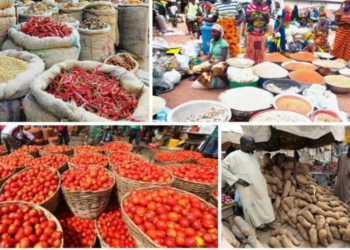Data from the National Bureau of Statistics reveal Nigeria’s inflation rate rose year on year to 11.85% in the month of November 2019 the highest rise since April 2018.
According to the bureau, increases were recorded in all subsets of the consumer price indexes as the effects of the border closure continue to bite hard on the economy.
Food inflation: A closely watched component of the inflation index, rose by 14.48% in the month under review compared to 14.09% in October 2019. This rise in the food index was caused by increases in prices of Bread, Cereals, Oils and fats, Meat, Potatoes, yam and other tubers, and Fish.
Food inflation rose by 1.25 percent in November 2019, down by 0.08 percent points from 1.33 percent recorded in October 2019.
All Items: The ”All items less farm produce” or Core inflation, which excludes the prices of volatile agricultural produce also rose 8.99% in November 2019, up by 0.11% when compared with 8.88 percent recorded in October 2019. On month-on-month basis, the core sub-index increased by 0.79 percent in November 2019.
What drove inflation: Inflation for the month of November was also driven by increases in prices of Cleaning, Repair and hire of clothing, hospital services, hairdressing saloons, and personal grooming establishment, Glassware, tableware, and household utensils,
vehicle spare parts, Repair and hire of footwear, Shoes and other footwear, Clothing materials, other articles of clothing and clothing accessories, Medical services and Passenger transport by air.
Other factors: As Nigerians continue to grapple with the effects of the border closure, the fast-approaching Christmas holiday is also piling pressure on the prices of essential goods and services. Nigerians typically spend the most towards the end of the year particularly on household items such as food, fashion and gift items.

















